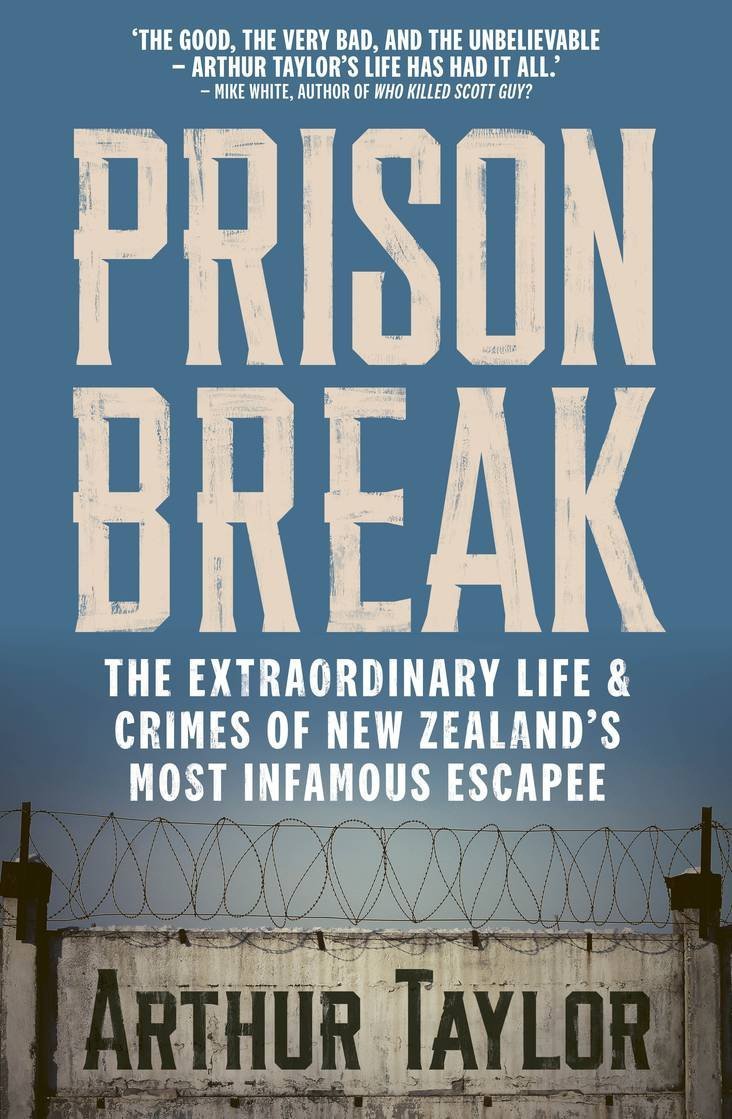
Arthur Taylor
Allen & Unwin
REVIEWED BY DAISY HUDSON
Kiwis love a good character.
Someone who’s a bit cheeky, who thumbs their nose at the authorities. Someone who’s ballsy and can spin a yarn.
Perhaps that is why career criminal Arthur Taylor has managed to hold his place in the country’s collective consciousness for decades.
Best known these days as a jailhouse lawyer and advocate for prisoner rights, Taylor spent most of his adult life locked up after accruing a rap sheet longer than his arm.
His exploits, and there are many, are detailed in his new memoir Prison Break.
After spending decades inside, it is a useful addition to any true-crime buff’s bookshelf.

Written while on parole at his new home in Dunedin, and with the assistance of journalist Kelly Dennett, Taylor recounts his remarkable life in typical fashion - conversational, straight up, and sprinkled liberally with curse words.
Taylor calls a spade a spade, and a shiv a shiv.
He has become something of a celebrity over the years, demonstrated in the book when a Dunedin bank teller asks him for his autograph.
Despite that, through the course of 300-odd pages it becomes increasingly clear how complex a character he is, and how murky his morality can be.
Being sent to the notorious Epuni Boys’ Home as a child established a strong distrust of authority figures that only grew throughout his life.
His many escapes from custody are told in rollicking fashion, from jumping in a freezing Temuka River during one early jaunt to living it up in mansion with several other escapees, including murderer Graeme Burton, while its owner was on holiday.
These exploits often go hand in hand with excessive praise for his own intellect and wiles.
While the memoir can occasionally read like a slightly farcical cops-and-robbers movie, there are darker sides.
It is hard to pin down Taylor’s personal code of ethics. He talks about not wanting to harm innocent people, but spent much of his time outside of prison stealing from them.
His views of other prisoners are also hard to reconcile. He writes with open disgust about rapist Nick Reekie and murderer George Baker, calling them scumbags. But other notorious crims such as Jason Somerville and Steve Williams, killer of Coral Burrows, are covered much more sympathetically.
Taylor shines best when writing about the causes he has fought for, such as voting rights and repealing a prison smoking ban.
He rails against the mistreatment of inmates with passion, solid reasoning, and cold hard facts.
And with several court cases still pending, we definitely haven’t heard the last of Arthur Taylor.
Daisy Hudson is an ODT reporter and is aiming to read 52 books this year












